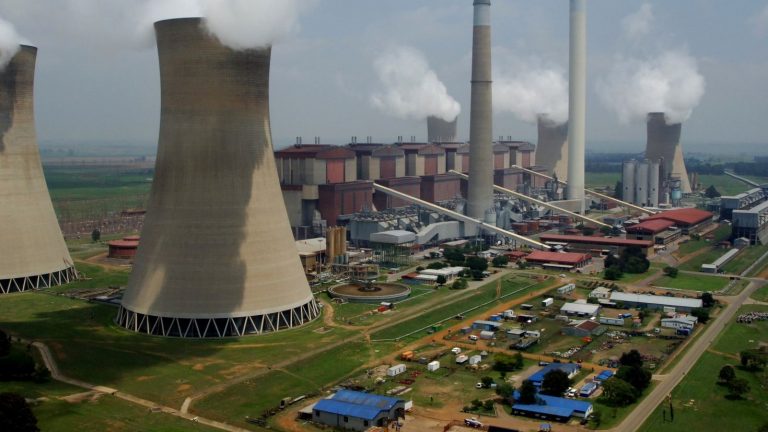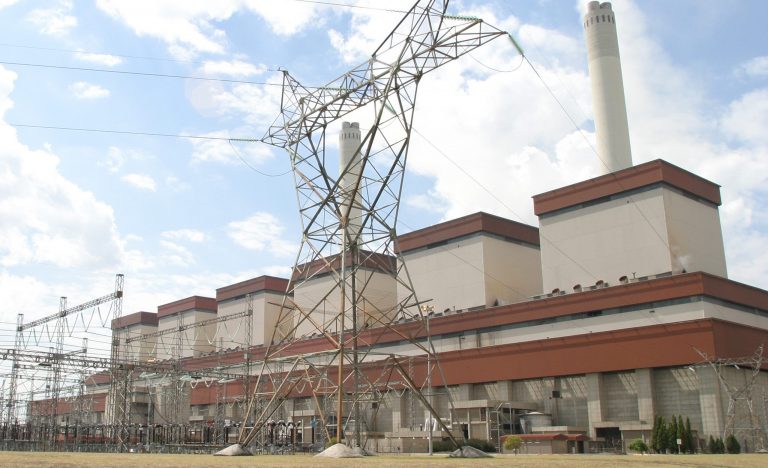Power system remains stable with a reduction in unplanned outages sustained; 3 960MW to return ahead of Monday evening peak to stabilise grid further
Friday, 25 July 2025: The power system continues to operate reliably, showing ongoing resilience in effectively meeting winter electricity demand. When occasional system constraints arise, they are effectively managed through the strategic deployment of emergency reserves during morning and evening peak periods.
Since 15 May 2025, there has been no loadshedding, with only 26 hours recorded between 1 April and 24 July 2025. With 37 days of Eskom’s Winter Outlook period still remaining, the system remains well-positioned to maintain stability and meet demand effectively.
As of today, unplanned outages are at 11 695MW and the available generation capacity is 30 236MW.
Tonight’s electricity demand is expected to reach 27 715MW. The current capacity is sufficient to meet both today’s demand and anticipated requirements over the weekend.
During the week of 18 to 24 July 2025, planned maintenance averaged 5 050MW. Over the same period, the Energy Availability Factor (EAF) ranged between 62% and 66%, with the month-to-date average further increasing to 63.11%.
To further strengthen grid stability, Eskom is planning to return a total of 3 960MW of generation capacity to service ahead of the evening peak on Monday, 28 July 2025, and throughout the coming week.
Between 1 April and 24 July 2025, the Unplanned Capability Loss Factor (UCLF), which measures the percentage of generation capacity lost due to unplanned outages, decreased to 28.99%. This marks a reduction of an ~0.5% compared to the previous week but remains about 2.4% higher than the 26.60% recorded during the same period last year. As of yesterday, the UCLF stood at 23.79%, consistently indicating a notable improvement in performance.
The open-cycle gas turbine (OCGT) load factor decreased this week, reaching 1.86%, down from the 8.6% recorded during the previous week (11 to 17 July 2025). This indicates less reliance on OCGTs.
From 1 April to 24 July 2025, diesel spend remains within the budget allocated for 1 April to 31 July 2025.
The Winter Outlook, published on 5 May 2025, covering the period ending 31 August 2025, remains valid. It indicates that loadshedding will not be necessary if unplanned outages stay below 13 000MW. If outages rise to 15 000MW, loadshedding would be limited to a maximum of 21 days out of 153 days and restricted to Stage 2.
Erratum:
Eskom would like to point out a correction regarding the diesel spend figure published in the Power Alert for the week ending 17 July 2025. We identified a discrepancy in the reported diesel amount. The actual diesel spend should have been R5.554 billion, not R5.897 billion as stated. The figure 5 897 was in fact the R/MWh and was mistakenly captured as spend instead of R/MWh. This regretfully resulted in an inadvertent overstatement of the diesel spend, which we hereby correct. Eskom continuously reviews its diesel spend and energy output figures as part of its monthly reporting and reconciliation processes.
Key Performance Highlights:
- For the week of 18 to 24 July 2025, unplanned outages averaged 11 555MW—a decrease from the previous week, but 1 077MW higher than the same period last year and 1 445MW below the base case estimate of 13 000MW.
- For the financial year-to-date, planned maintenance has averaged at 5 221MW, representing 11.11% of total generation capacity. This reflects a decrease from the previous week, but a 0.7% increase compared to the same period last year.
- The year-to-date EAF stands at 59.42%, excluding the 720MW contribution from Kusile Unit 6, which has been supplying electricity to the national grid since 23 March 2025, although not yet in commercial operation. This figure remains below the 62.42% recorded during the same period last year, mainly due to a 2.4% increase in unplanned maintenance compared to the previous year.
- Between 1 April and 24 July 2025, which falls within the winter period, Eskom spent R5.616 billion on fuel for its OCGT plants, generating 952.41GWh of electricity. This output is still higher than the 493.16GWh generated during the same timeframe last year.
- The year-to-date load factor for OCGTs has marginally decreased to 10.11%, reflecting a 0.53% decrease compared to the previous week. This figure remains higher than the 5.23% recorded during the same period last year.
Protect transformers this winter – avoid illegal connections and prevent power failures
With loadshedding suspended and electricity demand rising during the winter period, Eskom urges all customers to act responsibly and help safeguard the power system. Illegal connections and meter bypassing not only constitute theft but also place immense strain on the network, often leading to transformer overloads, equipment damage, and in severe cases, explosions and extended outages.
To protect critical infrastructure, Eskom is compelled to implement load reduction by switching off power during peak hours in high-risk, isolated areas to prevent potential damage. To help maintain a stable and uninterrupted electricity supply, customers are strongly urged to avoid bypassing meters and refrain from illegal connections. Electricity should be purchased only through Eskom-accredited vendors, and users are encouraged to regularise their electricity usage. These steps are essential to ensuring safe, reliable, and fair access to electricity for all.
Eligible households are encouraged to register for free basic electricity with their local municipalities.
Any illegal activity impacting Eskom’s infrastructure should be reported to the Eskom Crime Line at 0800 112 722 or via WhatsApp on 081 333 3323.
Eskom encourages all South Africans to use electricity efficiently throughout the winter season. To help manage household electricity consumption, Eskom customers are encouraged to use the Eskom Residential Calculator, a convenient tool for tracking and optimising energy usage: https://www.eskom.co.za/distribution/residential-calculator/.
Eskom will provide an update on Friday, 1 August 2025, or promptly communicate any significant changes as soon as they occur.
ENDS








